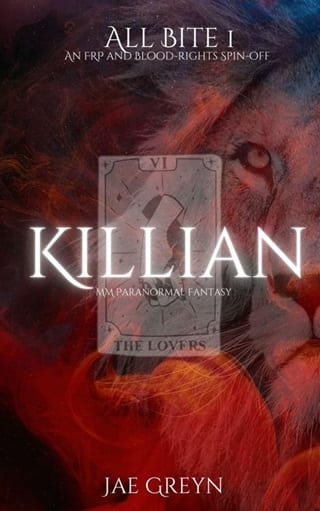Chapter 5
As a historian, I find such nuances relevant. As a philosopher, I find them enticing.
—From Knights of Wind and Truth , page 4
I t was nice for Shallan to take a few hours and think for once. Sitting, wearing a bright blue havah rather than her traveling clothing, on the top row of the stone open-air forum in Lasting Integrity, drawing. How long had it been since she’d simply let herself draw? She’d sketched a little during their trip, but that felt like an eternity ago.
She relaxed, flowing with the drawing: a depiction of the vertigo she felt looking up along one of the interior walls of Lasting Integrity. A surreal image like something from one of the older art movements, where perspective was intentionally alien and off-putting. She liked to think that the old surrealists had made contact with spren and Shadesmar, warping their minds to new ways of seeing things.
Though she’d never been as good with landscapes as she was with people, she was proud of the sense her sketch gave of falling—yet into what you could not see, because the unnatural perspective drew your eyes upward.
As with others she’d done today though, strange faces kept sneaking into the art.
In this case, she’d absently warped the shadings of one wall into a face. Feminine, a singer with a crownlike carapace and shadows and curves forming a stratalike design on her face. Shallan flipped through the sketchbook. Each drawing done today had that singer face hidden somewhere, and she didn’t remember making them.
She’d done something similar at Urithiru, where the presence of an Unmade had warped her sketches. She tried not to let it disturb her quite so much this time. Then, it had been a message. Was there a similar one now?
She looked toward Adolin, who paced at the center of the forum—the place where only a few days before, he’d been on trial. Today he’d been joined by Godeke, a lanky Edgedancer. Shallan’s agents had joined them as well: Ishnah, Vathah, and Beryl, along with their Cryptics. Together they waited for the Windrunners, and for the fruits of some final efforts in Lasting Integrity. She started another sketch as they waited.
In the end, twelve arrived.
Twelve honorspren, from a population of hundreds. That was how many showed up in response to Adolin’s call to arms. He and Godeke greeted each one with a smile, but she knew he’d expected more. One other did arrive: Notum. The former sea captain sported his unique facial hair as always, though he walked on unsteady feet. They still didn’t know why he’d been assaulted by those Tukari that Adolin had saved him from.
Notum didn’t join Godeke and Adolin, but instead walked down the steps to Shallan. “Radiant Kholin,” he said.
That was odd to hear, even a year after the wedding. It hadn’t been a foregone conclusion that she would take Adolin’s name; among the Alethi lighteyes, either party was equally likely to keep their name as adopt a new one. In her case, she was needed in the line of Kholin succession. She doubted she’d take a throne that Adolin had refused, but Dalinar wanted people he trusted in line. Her adoption into the Kholin house would strengthen her claim, should it come to that.
In explaining this to her, Dalinar and Navani had been speaking pragmatically—but that wasn’t what Shallan remembered most about that day. For her, it was the day when a set of parents had, for the first time, wanted her.
Notum settled down beside her. “Your mission was a success. Twelve new Radiants.”
“We expected more though,” Radiant said, emerging. “After the support Adolin got at the trial, I anticipated an excellent recruitment result.”
“A good number of honorspren support him,” Notum said, “but that doesn’t mean they want to be bonded. One can be irate at the honorspren leadership and think humans are deserving of support, without wanting to take that step.”
Below, the twelve honorspren started to fade.
“I’ve never seen this before,” Notum added. “I thought they’d go in a blink. Instead they fade away to nothing …”
“Not nothing,” Radiant said. “They’ll appear on the other side.”
“I hear it’s traumatic,” Notum said. He had a stiff, formal way of speaking, even when the words were casual. Clipping each word as if he were making an announcement from the quarterdeck of his ship. “Spren on the other side forget themselves.”
“Only briefly,” Radiant said. “These will probably stay in a group—which helps—and immediately make their way to Urithiru, drawn by the squires training there.”
“Do you still need them now, though?” Notum asked. “Isn’t the war soon to end?”
“Windrunners are our primary method of traveling long distances—and I suspect they’ll be very helpful in peacetime. Beyond that … even if Dalinar wins the contest, I worry about what is to come next. The more Radiants we have, the more stable our position will be.”
“Then I should hurry,” Notum said, standing. “To join them, so that I’m not left alone.”
Radiant approved. But Shallan … she noticed something.
“You sound reluctant,” Shallan said.
He looked at her, glowing the same soft blue as all the honorspren. His uniform, his hair, everything about him was made of the same light—solid, not transparent, but also not quite real in the way she understood reality.
“There is nothing more for me here,” Notum said. “I have been rejected of mine, and have seen their pettiness. I should like to be of service. Though … I admit, I do not wish to bond a human. I loathe the idea. Is that petty of me, in turn?”
“Absolutely not,” Shallan said. “I have two bonds, Notum, and understand the cost better than most. It’s not pettiness, or cowardice, to be hesitant. Just as it’s not petty or cowardly to reject any relationship.”
“Pardon,” Notum said, “but other sorts of relationships don’t lead to soldiers with remarkable powers.”
That did admittedly complicate the matter. But after learning what she’d done to Testament—who sat with Pattern a few rows down—Shallan couldn’t help but question their mission. They needed Windrunners, yes, but it made her increasingly uneasy to demand a spren bond. It wasn’t intimate in the traditional human sense of the word, but it felt as deeply personal.
“We can use every Windrunner, yes,” she said, “but I don’t think you should force yourself to bond a human if it makes you uncomfortable. You can be a good person and say no, Notum. I’ve learned that.”
“Perhaps I will stay here a little longer then,” Notum said. “With effort, I might persuade others of my kind to offer you support.” He pointed, and drew her attention to a group of honorspren walking past, wearing traveling clothing and carrying gear. As if leaving for a long hike. They waved to Shallan and Adolin, but did not join those fading away.
“Objectors?” Shallan asked as Adolin waved back to them. “Those you mentioned earlier?”
“Yes,” Notum said. “They don’t agree with how you were treated, but also don’t want to go to war. They depart Lasting Integrity to make their own way.”
She nodded. “Well, Radiant Godeke is staying to continue to normalize relations with the honorspren, and I might leave one of my agents as well. If you stay, that would help—they could use a solid ally here.”
“I am your ally,” he said, “but as I warned you, the honorspren leadership does not care for me, even if they have been forced to revoke my exile.” His expression grew distant. “We have an entire navy that once sailed the bead ocean; it is a shame to see those ships abandoned in the yards. It gives the enemy full control of the Shadesmar seas. Perhaps I could sail under honorspren authority again …”
Storms, if Shallan hadn’t said anything, Notum might have gone to become a Radiant spren—meaning that she’d just actively gone against their orders in coming here. Perhaps she wouldn’t mention that in her report to Dalinar.
No other spren came. Lusintia, the spren who had been Shallan’s guide since her arrival at Lasting Integrity, made no appearance. Shallan had hoped she would change her mind, despite their occasional clashes.
“Notum, thank you,” Shallan said. “For how you stood up for us during the trial.”
“I am one person stretched thin, Radiant Kholin,” he said, standing with his hands clasped behind him. “Like colors on the mast that have waved too long in the wind. I don’t know what I believe or trust any longer, but what was done to you was not right. I could not play the sham role they demanded of me. I ask your forgiveness for even considering it.”
“It was natural to want your old life back, Notum.”
He turned to her, blue eyes meeting hers. “I lay on the ground, battered and assaulted, and watched your husband rise in my defense against overwhelming odds. He saved me with no expectation of reward. In that moment I knew that Honor lived. ” He nodded curtly to Shallan, then walked down the steps to talk with Adolin.
Shallan slowly returned to her sketch—where she soon found that she’d drawn yet another face. In Adolin’s shadow. Storms.
Don’t be unnerved, she thought. You were upset when you drew Pattern for the first time, back in Kharbranth. But look how that turned out.
She would not be afraid of her own art. She gritted her teeth and forced herself to flip to the next sheet and start drawing again, until someone else sat beside her. Kelek leaned forward, hands clasped, seeming small and fragile.
“I’m not going with you,” he said softly. “I … I can’t.”
“It’s not safe for you here,” Shallan said, sketching, her fingers moving as if of their own accord. “If I got to you, Mraize’s other assassins can too.”
“I … I will hide. Better. But I can’t leave the seon, and she can’t travel now. It wouldn’t be good for her.”
Shallan didn’t argue. That never worked well with Kelek. Instead she lost herself in a sketch of him. A Herald to add to her collection. She might have said this was the rarest of gems to obtain, but was a Herald actually rarer than anyone else? One might argue that due to their immortality, they were less so.
“We are broken, Shallan,” Kelek finally said. “We are not the heroes you wish us to be. Not anymore.”
“I know how that feels.”
“I don’t think you do,” he said, wrapping his arms around himself. “I don’t believe anyone does.” He glanced at Adolin, chatting with Notum and Godeke. “You’re really going to try to find Mishram?”
“If I don’t,” Shallan said, “my enemies will.”
“Then what?” he said. “Will you release her? I … I cannot decide. Always cannot decide. I have advocated for her freedom in the past, but now I worry. She might join and strengthen Odium. She … hates humans.” He put his hand to his head. “Ishar says all the Unmade should be contained, yet what we did to the singers by imprisoning her …”
“I’ll worry about that when I find her gemstone,” Shallan said. “Honestly, I’ll probably bring her back to the Bondsmith and let everyone decide together.”
He didn’t respond, so she continued drawing. The familiar sound of charcoal or colored pencil on paper; the distilled attention of creation, like the most potent alcohol. She attracted a few creationspren, little swirling lights. These ones, though, behaved oddly—in here, she’d never seen them change shape like they did in the Physical Realm, but these started adopting the appearance of her pencil or eraser.
She kept drawing. Lines imitating life. Freezing it. But altering it at the same time, for you could never make an exact copy. That wasn’t the point. Every sketch was a picture of the artist as well: their perspective, their emphasis, their instinct reclaiming a moment otherwise lost …
Once you reached the end … it was sublime.
That moment when you basked in the thing you’d created—that feeling of awe mixed with disbelief that this beautiful object had come from you. Accompanied by the slightest worry that because you didn’t understand how you’d done it, you maybe didn’t deserve to have been part of the creation. She loved the feeling, even the uncertainty of it.
“Radiant,” Kelek said, hands clasped as he stared at the stone floor of the amphitheater, “what do you fear?”
What kind of question was that? “I don’t know,” she lied.
“I fear options,” he said. “I see each choice I make, and see the terrible results that could stem from it. If I stay here, I see you fail without me. If I go, I see my presence—broken as I am— cause your failure. I cannot continue. I … I do not …”
She rested her hand on his, then passed him the sketch. He took the picture, frowning, then his eyes widened as he saw it depicted him standing tall, wearing robes and striding from a fanciful city with colorful walls and strange trees with long fronds she’d made up. He carried a staff with an odd shape at the top, and strode toward a glowing light on the horizon—though in the picture, he looked backward and his face was determined. Decisive.
“Do you often do this?” he asked.
“Sketch people?” she said, then blushed. “Yes, I kind of do it all the time. When I’m feeling like myself, at least.”
“Not simply sketching, child. Do you often draw upon Fortune? Glimpse someone’s possible selves, and pull one forth … touch, in some small way, what could have been. What might still be …” He glanced to her, and must have seen the utter confusion in her eyes, as he sighed. “Is this a skill commonly employed by Lightweavers during your time?”
“Not that I know of,” she said. “But I don’t exactly understand what you’re saying.”
He glanced toward Pattern and Testament. “Two spren. Of course … you’ve bonded two. Strange things happen when the Nahel bond is imbricated. There were rules against it once, I believe. How long have you had them both?”
“For some time,” she said, “though I didn’t know it—didn’t remember it—until recently.”
“And how often,” he asked, holding up the sheet, “do you glimpse into the Spiritual Realm, then manifest it in your art?”
“I …” She thought back to pictures she’d done, like one found in the pocket of a dead man. Like sketches of the Unmade lurking in Urithiru … or faces turning up in her art without her intending to draw them. She began to feel like a fool for objecting so quickly to someone who clearly knew far more about these things than she did.
“It might happen now and then,” she said. “There was an Unmade in Urithiru, and it showed up in my art. Now these faces …” She turned one toward him.
He nodded. “Because you’ve been thinking about traveling to the Spiritual Realm and finding Ba-Ado-Mishram.”
“That’s her?”
“One interpretation of her, yes,” he said. “If you were someone else, I would assume you had seen some ancient art and were unconsciously influenced by it. For you …” He shrugged. “Fortune can do unthought, fantodic things.”
“I’m sorry. Fantodic?”
“It means … unnerving?” he said. “I’m sorry. I don’t keep up on shifts in language, nor am I an expert on Fortune. Best speak to Midius—your Wit—about that. A fantodic man himself, that one.”
He took her page and carefully folded it to place in his pocket. She cringed at that—she hadn’t applied lacquer to keep it from smudging—but was distracted by something happening up beyond the walls of Lasting Integrity. A group of glowing figures were descending, trailing various kinds of spren who could soar with them—attracted to their use of Stormlight. The Windrunners had arrived.
Seconds later, Drehy, his spren, and some of his squires landed nearby, holding common spears, as Shardblades couldn’t enter Shadesmar. At least not in Shardblade shape.
“I believe,” Drehy said, “a lighteyed lady ordered a palanquin trip to Urithiru?”
“Funny-looking palanquin, Drehy,” Shallan said, rising.
“Now, that’s not nice, Brightness,” Drehy said, thumbing over his shoulder at one of his squires. “Shiosak there might have been dropped a few times as a child, but he isn’t funny looking. He’s unique.”
Shiosak—who was actually a rather handsome, affable Veden man—rolled his eyes.
Five Windrunners. Not enough to take everyone; Adolin’s soldiers, and likely some of her agents, would have to make the more boring trip back via boat. Most wouldn’t mind that. The bigger problem would be Adolin—who would have to leave his horse and his swords behind. Shallan stood up as her husband, grinning ear to ear, came jogging up the steps. He knew Drehy, of course. Adolin knew everyone. She watched him count the Windrunners, do the calculations in his mind, and come to the same conclusion.
Almost.
“How many of you,” Adolin said, “will it take to fly my horse home?”
 Fullepub
Fullepub 



